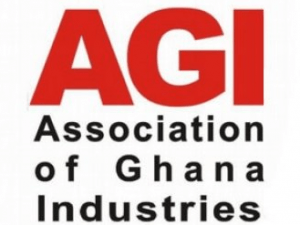AGI urges private sector to support EXIM Bank
 The Association of Ghana Industries (AGI) has urged the private sector to support government’s efforts in the establishment of EXIM Bank- Ghana.
The Association of Ghana Industries (AGI) has urged the private sector to support government’s efforts in the establishment of EXIM Bank- Ghana.
Mr James Asare-Adjei, the AGI President, said the activities of the bank would inure to the benefit of industries and businesses in the country.
He said the AGI in its advocacy, as the leading voices of private sector, had been highlighting challenges and difficulties which frustrate growth efforts of businesses and continued to stifle the country’s industrialisation drive.
Mr Asare-Adjei made the appeal in Accra during the fifth Ghana Economic Forum.
The two-day forum, which is being organised by the Business & Financial Times (B&FT), is on the theme: “A Ghanaian-owned economy – setting the agenda for achieving it.”
The theme was chosen to reflect the increasing need for more high-end jobs and investments in the economy that would keep monies home, even as foreign direct investments takes its share away.
The measures put in place to ensure enabling environment for businesses at the national and regional levels entail policies, administrative procedures, functional institutions, enactment of regulations and the state of public infrastructure.
Mr Asare-Adjei urged businesses in the country to begin to look beyond the domestic market and explore in all seriousness sub-regional markets, European Union and African Growth and Opportunity Act (AGOA).
He said the AGI expects a stable and conductive macro-economic environment that is harmonisation of monetary and fiscal policies.
He said for industries and businesses to thrive in the country, there was the need to create affordable credit for them, not the current 35 per cent and above ; adding that in Kenya for example interest rate were capped, not above 400 basis points, now 18 per cent.
He said the exchange rate volatility made planning very difficult for businesses, resulting in high foreign exchange losses to companies, adding that in the second half of last year, however, the cedi was relatively stable probably as a result of Government’s tight monetary policy.
“A stable cedi against world major currencies is crucial. High inflation affects cost of doing business,” he stated.
Mr Asare-Adjei said businesses were faced with multiplicity of taxes which tended to impact on competiveness and cost of doing business.
He said this reduced industries ability to retool, expand and generate more employment.
The AGI President recommended a review of the current tax regime which would make Ghanaian businesses competitive adding that there was the need for the Government to ensure fairness in tax administration, where businesses outside the tax net are brought in to reduce the tax burden on those which are already tax compliant.
He noted that government expenditure had been a major concern for the private sector and that the private sector expects to see true demonstration of fiscal discipline by government procurements.
He said this would enable citizens repose confidence in government expenditure.
On energy, Mr Asare-Adjei said the sector had become very expensive and sapping the financial resources of local companies.
He said this was making businesses uncompetitive and making some companies to seriously take a second look at their investments in Ghana.
Mr Asare-Adjei said private sector industry expected a reliable, sustainable and affordable power supply that would not compromise competitiveness of industry.
He urged government to consider the dedication of hydro plants to industry for power generation to ensure affordable tariffs.
Mrs Edith Dankwa, the CEO of B&FT, said coming from the battering of a three-year energy crisis, hyper-inflation, the most depreciating currency on the continent and heavy borrowing by government, Ghana was now in a mixed zone of pessimism and optimism.
“With the International Monetary Fund stabilising the currency and putting in place measures for growth which include the taming of the twin-deficits, Ghana is not only poised for stability but sustained growth,” she said.
Source: GNA
